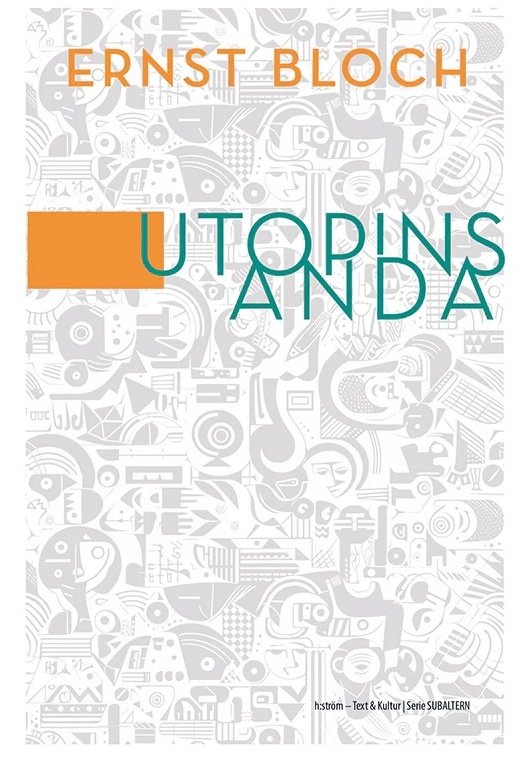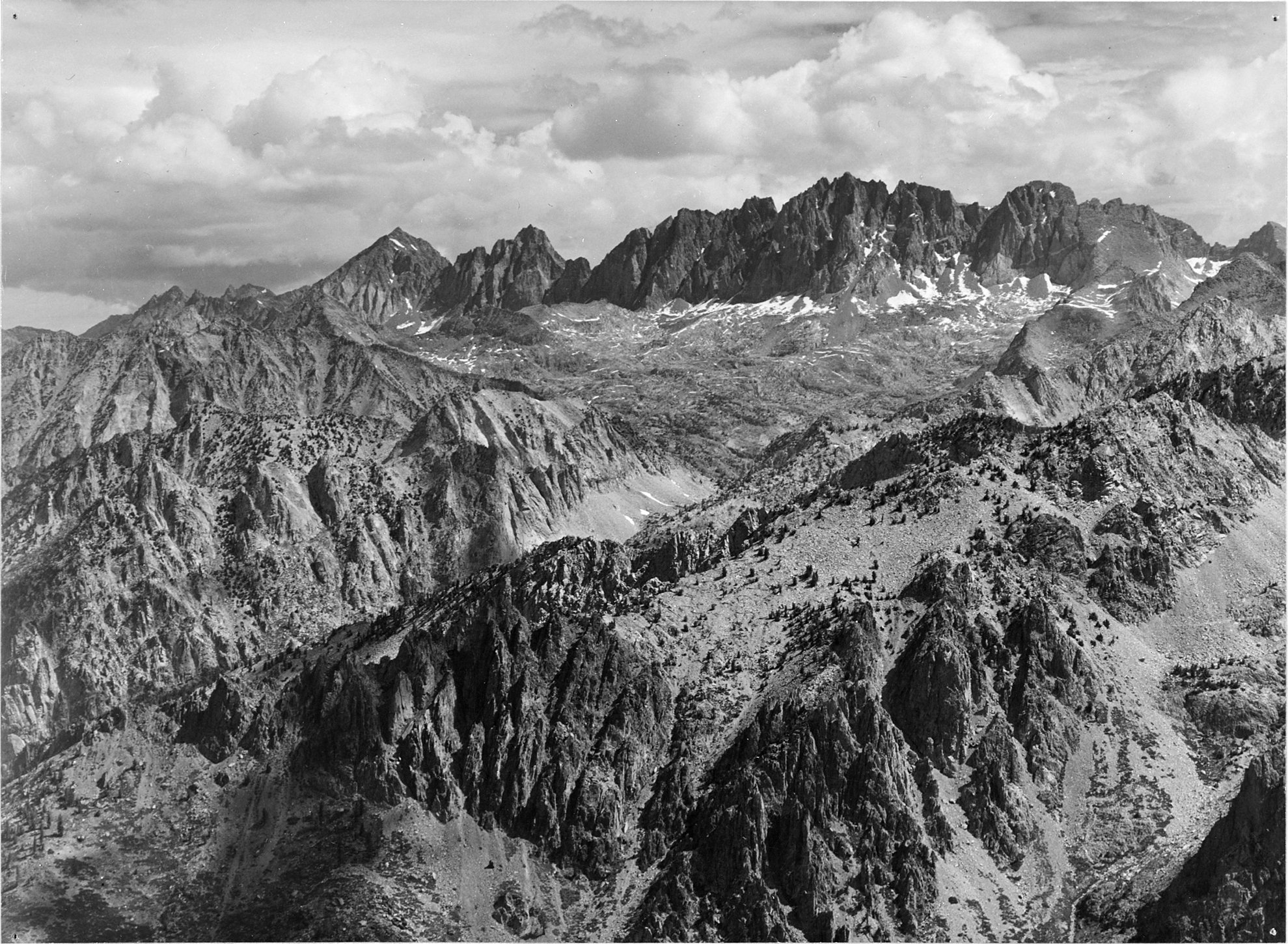"The revolt eclipses whatever the world has to offer" – Idris Robinson
/A conversation with Gerardo Muñoz
Idris Robinson is a young African-American thinker whose reflection surveys the events of a country crossed by a civil war on multiple fronts. The appearance of his text "How it Might Should Be Done", in July 2020, clarified many things in thinking through the lines of tension raised by the murder of George Floyd, the repressive intensification of Trumpism, the capillary forms of protests, the expansion of the "hinterlands" (a no man's land between the cities and the rural world), and the new technical-spatial hegemony of the larger cities. In that text, endowed with poetic force and analytical passion, Robinson initiated a discussion that still remains open today, namely, what is implied by the outcome of, what with Nicole Loraux and Giorgio Agamben can be called, a civil war that overcomes both the old political paradigms of authority and the mediations between state and civil society? Taking up this theoretical line of reflection, it was applied to the concrete historical lineage of the conflict that led to the end of slavery in the country of his birth, but never managed to abolish its omnipresent thanatopolitcal drive for anti-black racism. Obviously, the question of destitution and new forms of exodus in preparation toward a possible ethical life appear in this interstice. Since then, we have continued to wrestle with Robinson's texts within the dark moment of the American interregnum.
Robinson is a philosopher by profession at the University of New Mexico where he is working on a doctoral dissertation on Wittgenstein's morphological logic and Enzo Melandri’s work on analogy, but he has also been a prominent figure in the social movement following the assassination of George Floyd. In the last two years he has been collaborating with Ill Will Editions and Red May Seattle. On a personal note, I should say that late last year some of us began a dialogue with Robinson in the context of a conference on undercommons and destituent power, about the relationship between civil war, the horizon of destitution, and the possibility of a transfiguration of contemporary politics. And it was in the light of these exchanges that the idea arose of putting in order some of the themes that now appear in the form of a conversation. This is by no means a finished dialogue, but rather an unfinished conversation where the possibilities of thought and the flurry of events come together in an epoch outside of itself. The original version of this exchanged appeared in Revista Disensoin Chile early March of 2021, and the English version is appearing here for the first time at Tillfällighetsskrivande.
Gerardo Muñoz: Idris, thank you for this dialogue on the current moment in America. I suppose a pertinent starting point must be the ongoing civil war. This is a problem that has been of interest to you for some time. Certainly, this civil war is not necessarily between two familial sides, as it is sometimes thought of in the political tradition. In our time, this civil war is also taking place on the scale of legality (a 'superlegality' as I have recently called it), but which has all the ingredients of the stasiological form: total mobilization; fragmentation; reconfiguration and deployment of the police apparatus (armed formations, cybernetics, pedagogy); and the increasing decline of the principle of modern authority. We also seem to see before our eyes the exhaustion of constituent power and "civil society," which traditionally were the two poles for the renewal of "We The People." In other words, we are now in a moment that we could call destituent. What are the possibilities that are opening up, if, indeed, we can characterize this moment as one of ongoing destitution?
Idris Robinson: I think you are correct in characterizing the recent events in the United States in terms of civil war. Indeed, Dimitris Chatzivasileiadis has, quite eloquently, summed up the current situation, when he wrote: “After centuries of slavery, the consciousness that a civil war has ceaselessly been taking place is again emerging massively. This was silenced as long as the one side, the tyrants, had the power to eradicate its memory… But the moment it takes again to the streets, all the memory, all the class history comes forth like a volcano.” For this reason, I greatly appreciated your theoretical intervention in Cuarto Poder, as I want to insist upon the need to truly think civil war, despite whatever intellectual reluctance might prevail.
Accordingly, what the classicist, Nicole Loraux, has convincingly demonstrated with regards to the significance of the Greek term, stasis – which not only denotes civil war, but can as well be understood as factional conflict, partisanship, and sedition – applies to the American experience as much as it did to the classical world’s experiments in collective living. That is to say, civil war remains a constitutive element binding together the very structure of the political in the United States, and this is precisely why it is constantly subject to varying levels of repression within the country’s historical consciousness. I’d even venture to say that civil war and race share the same status in America: both stand as an unapproachable and traumatic kernel that the nation must avoid for the sake of its own existence.
Moreover, I agree that there is a vital link between civil war and destituent power or potential, but I am not prepared to specify the stakes of this relation with the degree of rigor demanded by the problem. At most, I can say that my starting point begins with some of Giorgio Agamben’s formulations on the topic. Accordingly, I take civil war to be a play of forces that mutually entails a politicization of the private realm and de-politicization of the public sphere; thereby, opening up a zone of indiscernibility between the oikos and the polis, domestic and civic life. In the American framework, we are already beginning to see how the abolitionist overcoming of whiteness implies a fracturing of the family, since taking up the cause of black liberation tends to correspond with forsaking the lineage of whiteness. The oft-repeated and rather banal narrative fed to us about the last civil war being a clash of “brother against brother” is beginning to acquire some historical thickness, as these conflicts are starting to play out again in the present moment, shattering the otherwise awkward silence that previously ruled over white American dinner tables. Likewise, the plantation can be understood as a household, where certain forms of libidinal violence were deployed in order to maintain compulsory labor. However, it is obvious, today, that the wider nation, as a whole, exhibits many of the relations that were formerly invested within the system of estates. Thus, it may be possible to define destituent power as that which moves to sever the relational network of familial and political bonds encompassed by the (American white supremacist) State.
In addition, I would like to point out how revealing it is to see the various expositors of Agamben’s thought downplay or dissemble the conceptual centrality that he ascribes to civil war now that it has arrived on their doorsteps. In my view, their defensive abnegation is connected with a theme that Mario Tronti put forward in his 2005 essay “Toward a Critique of Political Democracy,” but was also expressed in his well-known interview on the topic of destituent power:
After all, democracy is always ‘democracy in America’; and the United States has always exported democracy with war… In fact, it is after the age of the European and world civil wars that democracy truly triumphed. And democracy was finally decisive for the victory of the West in the last war, the Cold War. Contrary to what one often hears, especially from progressive quarters, I deny that in the current phase we are experiencing the centrality of war. It seems to me that this present emphasis on peace-war is entirely disproportionate. All the wars are taking place at the borders of empire – on its critical fault-lines, we could say – but the empire is internally living through its new peace, though I do not know if it too will last one hundred years. It is in this condition of internal peace and external war that democracy does not merely prevail, but experiences a resounding triumph.
Now that the Pax Americana has come to an end and the neo-liberal world order is collapsing in on itself, its fiercest critics become its most ardent defenders and dive through intellectual hoops so as to preserve their comfy armchair set right at the very heart of empire. Instead, I insist that the correct line to hold is that their chaos is our peace, their confusion is our sanity…
You have touched on a lot of important elements and I am particularly interested in the way you are thinking about the question of stasis as a process of incision and fragmentation (of the family bond, of the ideal of whiteness, but also of the social matrix), and obviously by saying this you implicitly allude to the age-old problem of violence. Or perhaps we could speak of a new "culture of violence". Of course, during the modern revolutionary epoch (let us say from Jacobinism to the guerrilla war of the 60s-70s), violence was understood as a mechanism of sacrificial investment of the political subject, something that from my point of view would explain its limits and insufficiency. In other words, modern revolutionary violence would have been trapped in the sacrificial entelechy of the Christian liturgy. Now, we can no longer speak of a "political vanguard," so that at this point a new form of violence can occur outside the hardening of subjectivity, that redoubt of Humanism. In your text "How it Might Should Be done?" you address this question in an original way and go so far as to speak of the tactics of the fox. The fox always knows how to generate strategies, because she knows when to retreat and when to advance. This is the movement of anabasis. I found this curious, and it is not minor that you think about it in the form of a fable. Could you say a little more about how you are thinking about this other dimension of violence?
As is well known, this was a reference to Machiavelli’s claim that two beasts – the lion and the fox – must reside in one and the same prince so as to secure the favor of virtue and fortune in politics. On the one hand, the lion can overpower the wolf, yet carelessly stumbles in the hunter’s trap; while, other the other hand, the fox is shrewd enough to avoid the trap, but will instead succumb to the wolf. From the perspective of revolutionary politics, both are demanded: the lion represents sheer force, violence, and the masses in an overwhelming swarm; whereas the fox represents subversion, as the capacity to undermine power without a frontal assault.
In my talk, I conceived of the trap as the spectacular misrepresentation of the George Floyd rebellion as a kind of peaceful non-event. Recently, the comparisons drawn in progressive circles between the rebellion and what occurred at the Capitol Building on January 6th has become an additional recuperative feature of this discourse. In fact, I’d argue that the delusions that liberal America entertains about violence and race has reached levels that mirror the radical right’s fantasy’s about Q-Anon. Altogether, I take everything that is associated with intersectionality, identity, and privilege politics as roughly the same kind of trap in the way that it impedes any meaningful change. Since these obstacles have become so pervasive, it will require all of the sly cunning of the fox to bypass them.
It is clear that today the important thing is to affirm what we would call the dimension of the "event" above forms and subjectivities. And it seems to me that this is what you allude to in your reading of the different animal instincts in politics. Perhaps only the fox can surprise an event in the world. Along these lines, I'd like to raise a question that I don't think has been sufficiently explored: does it seem to you that we can think of the eruption of revolt outside of its strictly "political" form (the insurrection, the tumult, the occupation of an autonomous space), and thus as a movement to attack boredom and immobility? A fellow traveler of ours speaks of the "fiesta" (festivity) as a revolt of everyday life, closer to friendship than to a mobilization of direct political activity. Power today seeks to articulate a provocation and exhaustion upon the body. Doesn't it seem to you that destitution is also a vital intuition, almost psychic, against the boredom of all subjection to life?
In the modern history of revolt, we can locate both the sacrificial and the carnivalesque figure. For example, Saint Just and Nechayev are, clearly, embodiments of the former. Whereas the revolutionary sequence of ’68, with its emphasis on the party or the festival, has given way to the dominance of the latter. I think that both have proven themselves to be deficient, as each remains trapped in a back-and-forth dialectic that ultimately leads back to the State. Their shortcomings can be made clear by way of Walter Benjamin’s analysis of positive and natural law in his “Critique of Violence” essay. On the one hand, sacrifice overlooks the individual as a means towards a justified end; on the other hand, the carnival instead stresses hedonistic means to a consistent end in personal enjoyment. With both hopelessly intertwined within the juridical framework of means and ends, this century calls for a new configuration of the connection between lack, desire, and agency.
The best suggestion that I have come across has been Rodrigo Karmy’s account of the figure of the martyr in his interpretation of Furio Jesi’s Spartakus: The Symbology of Revolt. Due to his first-hand experiences in the Parisian May, Jesi himself observed what anyone who has ever swept up in the fever of revolt can attest to: the insurgents in a rebellion enter into a new and different relationship with time. More generally, Jesi concludes that genuine revolt always provokes a suspension of historical time, such that the actors engaging in the event are unable to know or foresee its consequences. It follows that revolt necessarily involves a disruption of any rational justification that could bring means and ends together, because it is impossible for the insurgent to calculate the steps of action that might couple the former with the latter.
The paradigmatic outline of the martyr is endowed with substance through its total immersion in revolt, as the individual becomes both unwilling and unable to conceive of the ramifications of their actions outside of the present insurrectionary moment. That is, due to the excessive nature of revolt, he or she can no longer be bothered by the physical, psychological, or financial standards of well-being promoted by the status quo. As Karmy puts it, the martyr makes a wager on a surplus of life that goes beyond any subjective or objective reasons. Upon considering this wager, it becomes clear why it is a fundamental mistake to ever identify the martyr with ascetism, renunciation, and sacrifice.
Instead, Karmy explains in Intifada (2020), “In daring to revolt, the risking of one’s own person on the incalculable intensity of insurrection implies forging a link at the intersection between myth and political propaganda, the eternity of an immobile time and the contingency of history.” For this reason, I like to emphasize that, on the one hand, the religious tradition tends to understand martyrdom as a gift. For our purposes, we can think of it as surrendering something lesser for something else of an immeasurably greater value: a judgment that the implicit humanity and lived experience of revolt does indeed eclipse whatever the world has to offer. On the other hand, the martyr seeks to wholly inhabit this suspension of time, freezing the brief flash of rebellion, to thereby achieve a kind of secular immortality. In this way, the death of Rosa Luxemburg was a choice to forever remain within the truth of authentic revolt by eschewing the craven falsity of social democracy. Likewise, Michael Reinoehl took the possibilities manifested within the George Floyd rebellion as utterly superior to whatever worthless plastic insanity the United States of America peddles to its citizens.
It's really moving when you talk about revolt as a force that can eclipse the world, something that raises to the starry skies an image that can never be appropriated or governed. That faraway gaze in the sky is the only one that can give us back something transformative to let us inhabit another earth. However, looking down, we see a new metamorphosis of power unfolding. Whether in the Chilean October, in the Yellow Vests, or in heterogenous insurrections throughout Latin America, we see that the metropolis today has emerged as a topology for the reproduction of “the world of life.” In the United States, as we know, there appears what Phil Neel has called the "hinterland," a no-man's land that, by virtue of its anomic condition, fragments the separation between the metropolis and its outside. I wanted to ask you about this: given the hegemony of the metropolis in the North American spatial organization (New York, San Francisco, Chicago, Silicon Valley), would you be willing to concede that the metropolis is today the center from which destitution intensifies?
There is much to say about, but I’m only capable of touching on a few points. For starters, I think you are right to indicate the importance of the hinterlands, as you did in your review of Jason E. Smith’s recent study, and especially with regards to the past summer’s uprising in the States. I would also add that Shemon, Arturo, and Attitcus’s “Fire on Main Street: Small Cities in the George Floyd Uprising” provides us with an illuminating analysis of this phenomenon.
As for myself, I’ve noticed for some time now this “banlieueification” of American cities. After decades of an exceedingly violent process of gentrification, I’ve witnessed certain trends in the displacement of family and friends. What is of the utmost significance is that this proletarianization of the periphery has left its imprint on a number of revolts which have caught my attention over the course of the last decade or so. For example, I first noticed something of a shift during the Kimani Gray uprising, since the absence of a direct subway line to the Manhattan center lent the Flatbush area of Brooklyn, where it occurred, some level of autonomy. Of course, the classic case of this was the Fergusson uprising of 2014. Yet, the impact of the suburbs and the small cities was truly on full display in last year’s hot summer.
On flip side, American cities have almost unanimously suffered from a very acute concentration of capital, specifically in finance, insurance, and real estate. As a consequence, they have been transformed into complete cultural wastelands. This has profound anthropological dimension, whereby the city-dwelling animal has internalized the very worst aspects of bourgeoisie society; and its thoughts, feelings, tastes, and behaviors have become homogenous expressions of this emptiness. It invokes in the imagination certain fantasies of proletarians, from the outside, surrounding, sieging, and plundering the center of the city. We saw some of this last summer, but hopefully, the George Floyd uprising was only the cinematic trailer to an upcoming feature-length film.
Finally, let me end with a question about the sequence that is opening up after BLM and the insurrection over the murder of George Floyd: is it possible to think of other discontinuous logics of this energy? Rodrigo Karmy, whom we have already mentioned, has spoken of a rhythmicity of the revolt, as a way to predict the duration of the event but not necessarily its future; that is, to think it outside a unification of the movement (hegemonic logic), or a second phase of an "institutional" type that translates as the intonation of the rhythms into a process of administration and social redistribution. In my opinion, this brings to bear the question of how to free the fragments of the conflict from what I call a posthegemonic opening. In any case, how are you thinking about this problem in the face of the next phase?
After Trump’s ascension to the presidency in 2016, I’ve given up on making any forecasts. Whatever assurances that Americans had formerly believed they could hold on to, should now only be mocked like Dave Chappelle and Chris Rock did on that notorious post-election episode of Saturday Night Live. However, on a more serious note, this unpredictable volatility indicates the conditions of the crisis and how deep they run. All I can say is that, with so much tumult under the heavens, the situation is, indeed, excellent…































